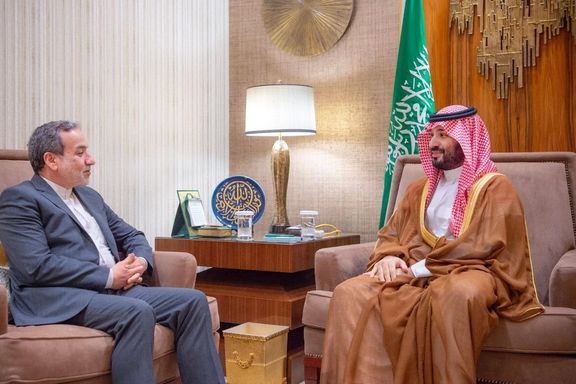Al Jazeera’s Arabic and Persian websites quoted FM Abbas Araghchi as saying that “Diplomatic channels with the United States have remained open through other countries, and we are exchanging views indirectly. There is a consensus on the need to find a diplomatic solution to the ongoing crisis.”
Iran’s Tasnim news affiliated with the IRGC also quoted Araghchi as saying that diplomatic channels with the United States remain open through other countries, and “we are exchanging views indirectly. There is a consensus on the need to find a diplomatic solution to the ongoing crisis.”
US State Department spokesperson Matthew Miller during his daily briefing on Wednesday did not deny the existence of back channels, but he did not confirm negotiations with Iran. Refusing to be specific about contacts with Tehran, Miller said, “I’m not going to speak to any specific communications, but we have long made clear to the Government of Iran, both directly and indirectly, that they should stop funding terrorism in the region...”
Asked about reports that Arab sates were putting together a proposal for a region-wide ceasefire, Miller denied knowledge of any such initiative. “There isn’t such a plan or proposal to my awareness. I obviously can’t speak to what other countries may or may not be developing on their own, which is not to say that it’s happening, but certainly no one has reached out to the United States about such a proposal, and we’re not in talks with any countries about such a proposal.”
Araghchi who wrapped up a trip to Saudi Arabia and Qatar on Wednesday stressed that during his trip, he held discussions on how to achieve a ceasefire to prevent more death and destruction.
According to Al Jazeera he said, "Saudi Arabia plays an important role in the region, and Qatar is also an influential country. We are consulting with them to stop the war."
Araghchi’s regional tour took place amid threats of an Israeli retaliatory strike for Iran’s ballistic missile barrage on October 1.
Iran has long been demanding a ceasefire in Gaza, where the Israeli military has killed thousands of Hamas fighters and dismantled their military infrastructure, including underground tunnels. As Israel began to intensify its attacks on Iran’s most important proxy force, the Lebanese Hezbollah, eventually killing its leader Hassan Nasrallah, Tehran also raised demands for a ceasefire there.
With relentless military pressure on Hezbollah, the Lebanese daily An-Nahar reported on Thursday that numerous mid-level Hezbollah leaders have recently left for Tehran or Baghdad. The group is undergoing major internal restructuring to guard against potential infiltration within its ranks, according to the Lebanese paper.








